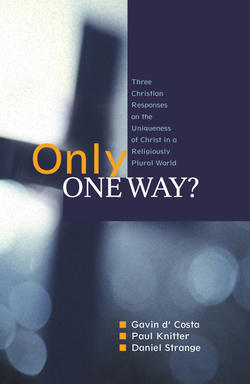Читать книгу Only One Way? - Gavin D'Costa - Страница 26
На сайте Литреса книга снята с продажи.
Theology is an ongoing conversation
ОглавлениеLet me offer this as a loose definition of theology: Theology is a mutually clarifying and a mutually criticizing conversation between Christian experience and beliefs on the one side and ongoing human experience and understanding of self and the world on the other side.2 This is how ‘faith seeks understanding’ – by engaging in this honest and open-minded conversation between the two ‘sources of theology’ – that is, the ‘text’ of the Christian message and the ‘context’ of one’s place in the world. It is a genuinely mutual conversation in which there are real questions and real answers on both sides. It’s a conversation between what we believe God reveals particularly in Jesus the Christ and what God reveals universally in creation. God is speaking to us on both sides of the conversation, for while God has truly revealed something new and special in Jesus, God continues to ‘speak’ to us through the world. That’s why we call this conversation ‘mutually clarifying and criticizing’. What God has made known in and through Jesus helps us understand, clarify and correct our human experience. But our human experience and our human intelligence and conscience help us understand, clarify and correct our Christian beliefs. It’s a two-way street.
I can hear the rumble of concern: does this mean that what God is revealing in my own experience and conscience is just as good as what God reveals in the Bible? Well, no, but also yes. Because the Bible – I’m talking especially about the New Testament – is the original witness, the primary source, for our knowledge of and contact with the particularly ‘Good News’ that God has offered in Jesus, it bears an authority that, one must say, is much more reliable than what I think God is making known through my own experience.
And yet – and yet – the truth and the authority of the Bible can become real and powerful for me only when it ‘makes contact with’ my own experience – only when it inspires me, or confounds me, with a truth that I can feel. This means that the truth that God has given us in the Bible is not, as it were, an apple that we can simply pick. It’s more like a potato that we have to dig out. The Bible, in other words, has to be interpreted. And to interpret, we have to make connections between the ‘sound waves’ of the Bible and the ‘antennae’ of our own lives. Or more simply, the Bible will speak to us only if we speak to it. Again, we’re back to our image of theology as a give-and-take conversation.
